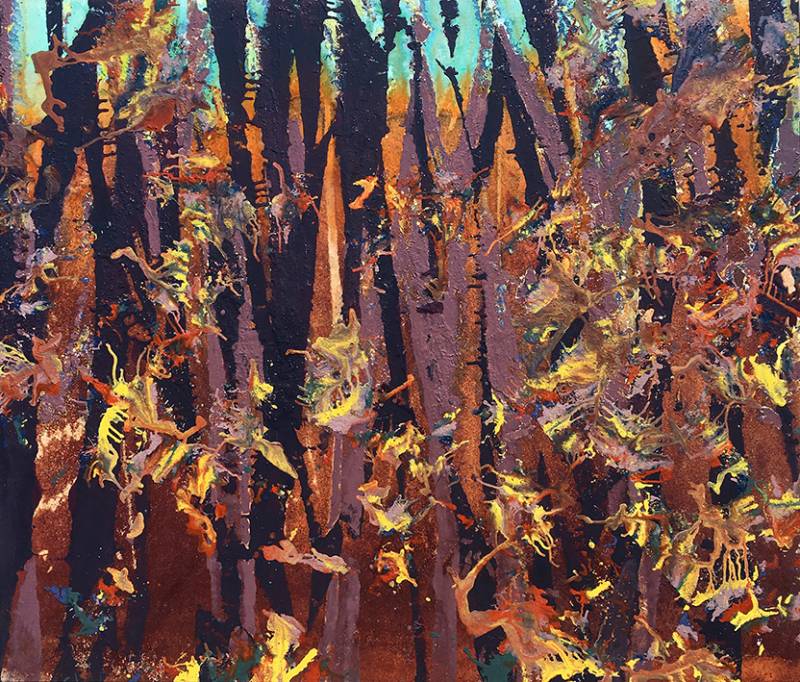
“From looking at nature to thinking through natural elements, Bassam Geitani invites us to embark on his journey of visual explorations.
Starting in the year 1991 in Paris, Geitani pushed tunes of oil colors on canvas to capture the luminescence of landscapes: Romantic explorations that he would soon lay aside to immerse in the physicality of materials. He shifted quickly to question the constituents of his painting by incorporating varied elements in and on his canvases. His landscapes became the results of experimentations with natural and other components. He would paint with iron dust and fragments, watering them and leaving them to rust. His canvases linger as contemplation fields marked by the natural flow of rivers and streams, leftovers of actions and reactions of elements and time.
He was extending time and incorporating space as essential ingredients in his creations. The natural elements themselves, with their intrinsic references, become, at the same time, the tool and the subject. Geitani is recognized for his fluid gestures employing iron fragments imprinted on his canvases, one of which is part of the British museum’s collection.
Today he is exploring unusual ingredients: clay, incense, glitter... He employs them in configurations that remind us of his explorations of the “Le pendule de Foucault” series, circular formations, the resultant of the natural movements in time and space. They become his “landscapes”, surface treatments, extending before us to study and consider.
This exhibition showcases Geitani’s visual research and process, as it highlights his early move to what we refer to today as contemporary thinking. It puts forward, very clearly, what art-making is for him. His projects capture specific moments of alterations; as they document the materiality of events. Geitani is provoking our relation to nature and its representation in a vastly changing world. Geitani hastens our vision from the observational realm, through the symbolic, to confront us with an immediacy of existential poetry.”
- Hanibal Srouji